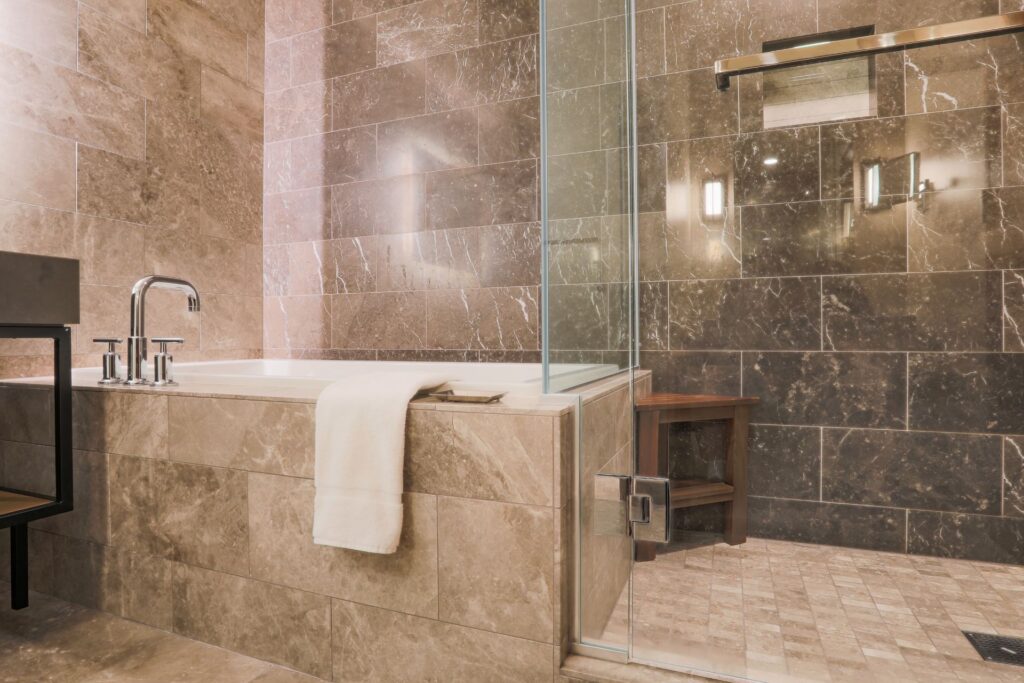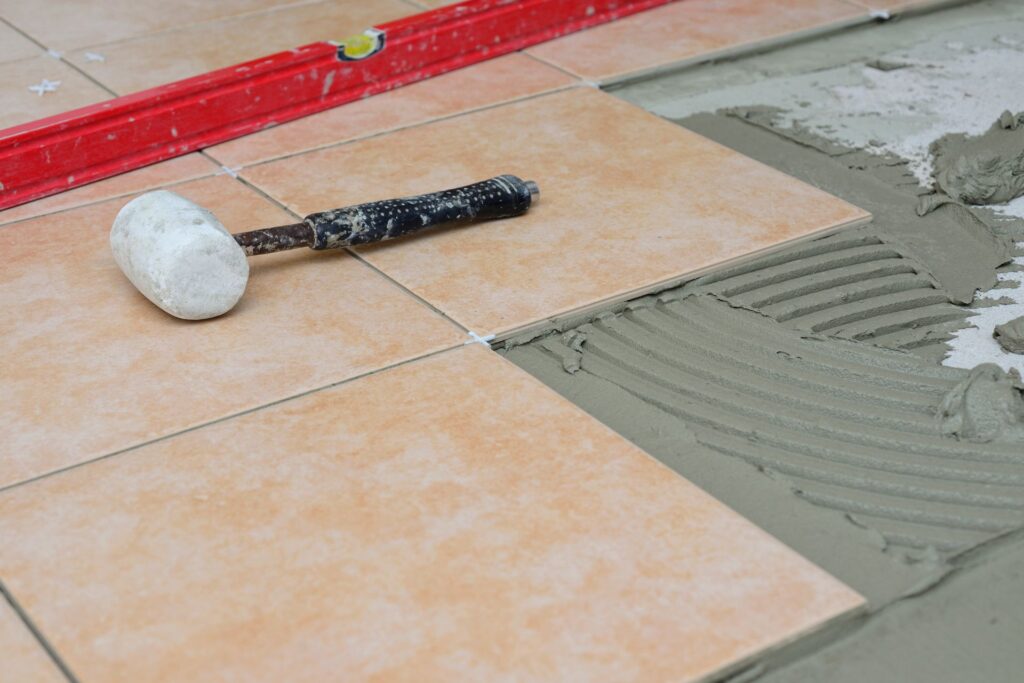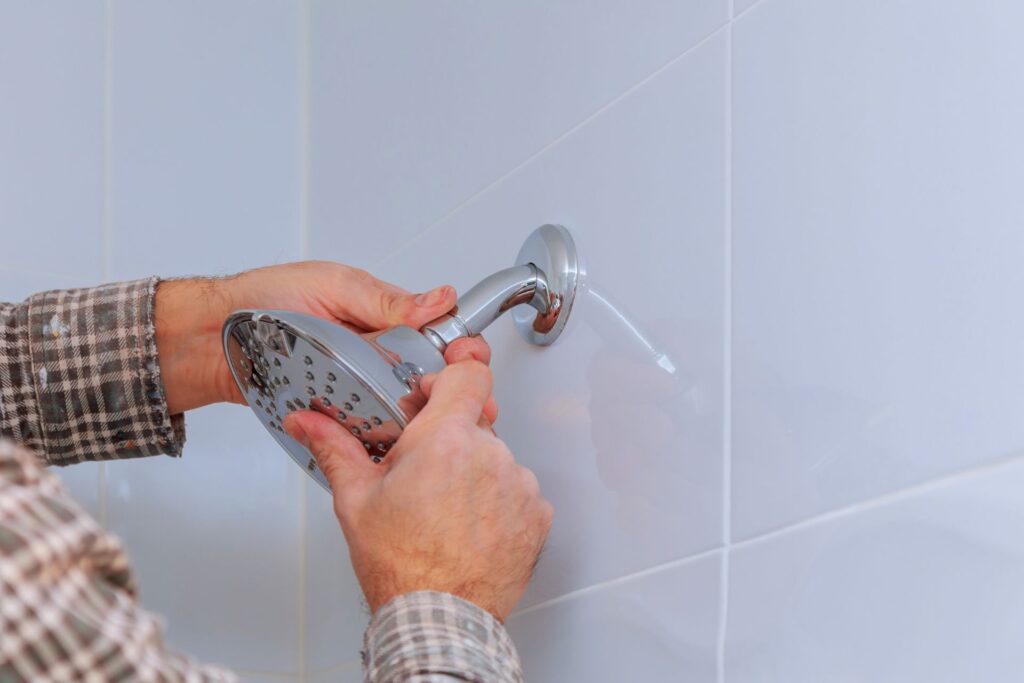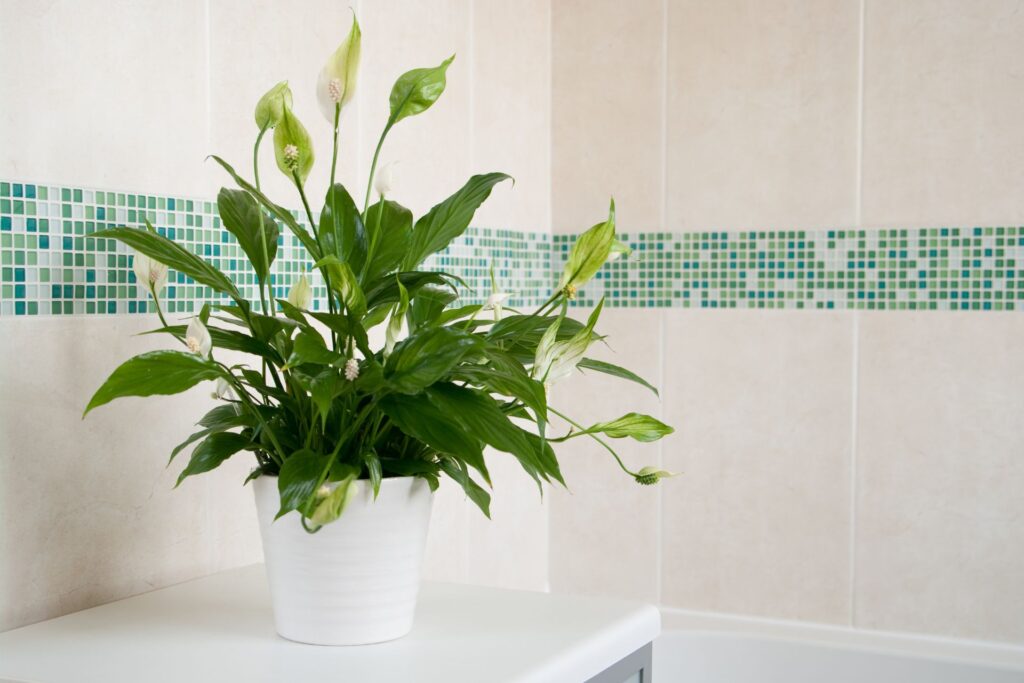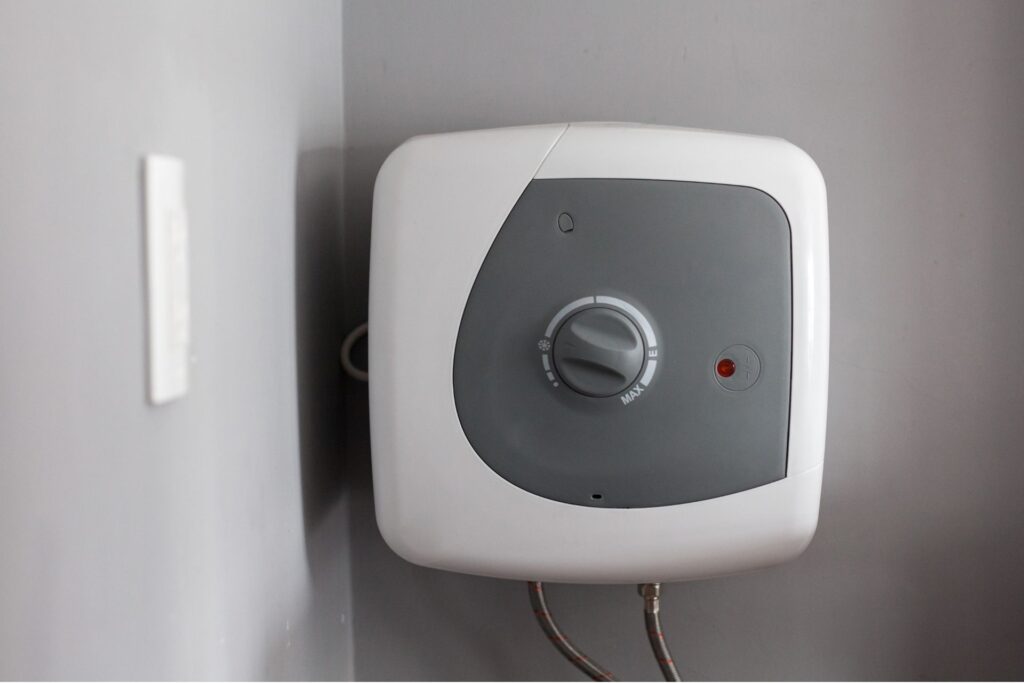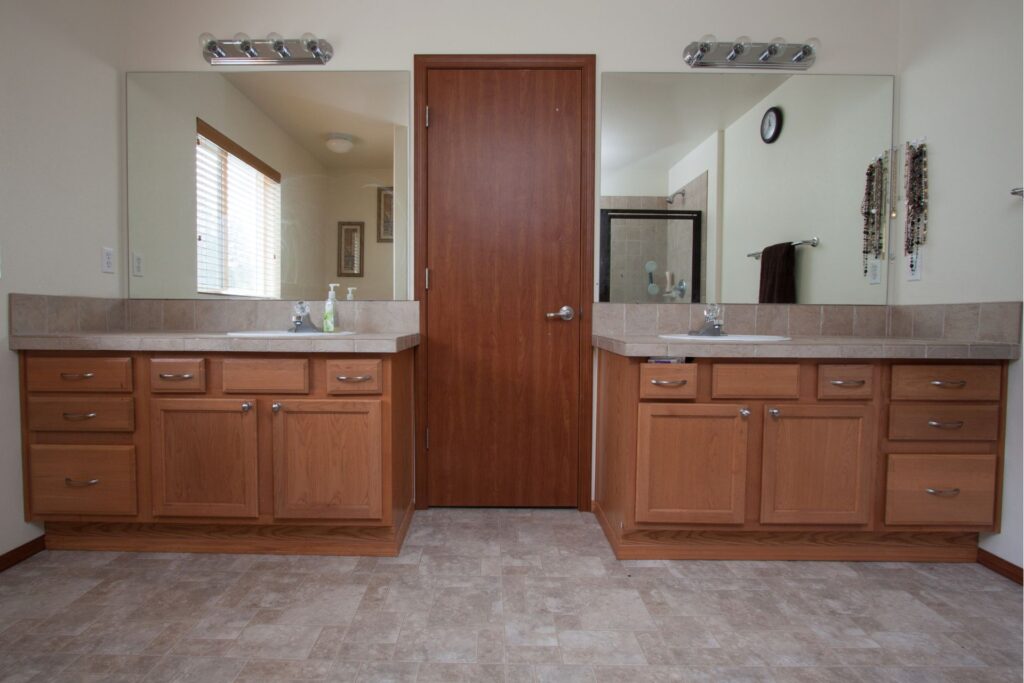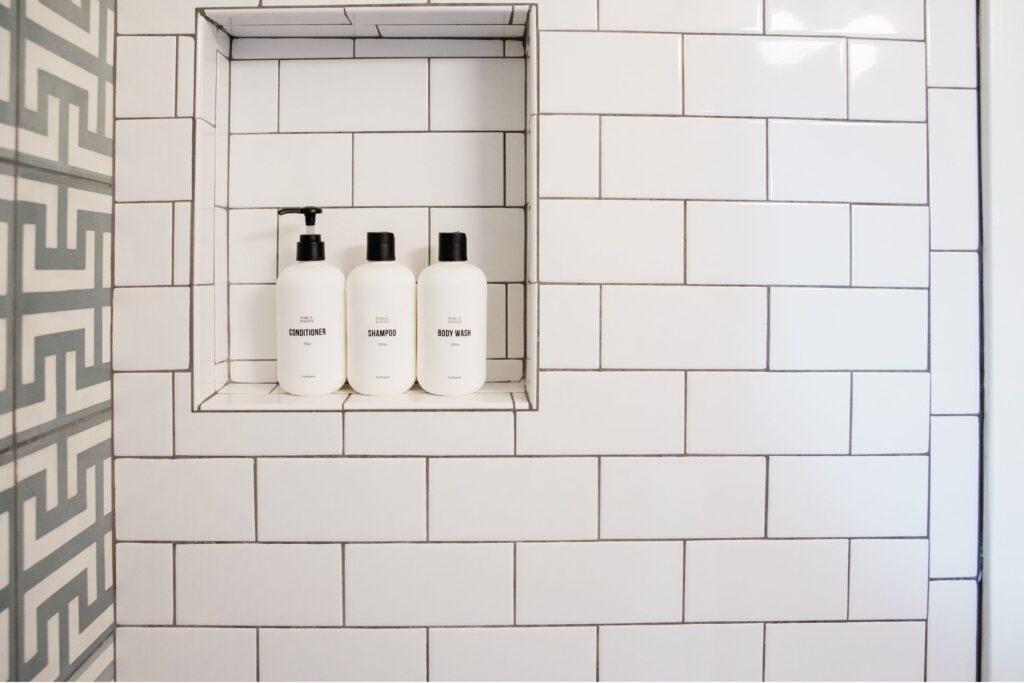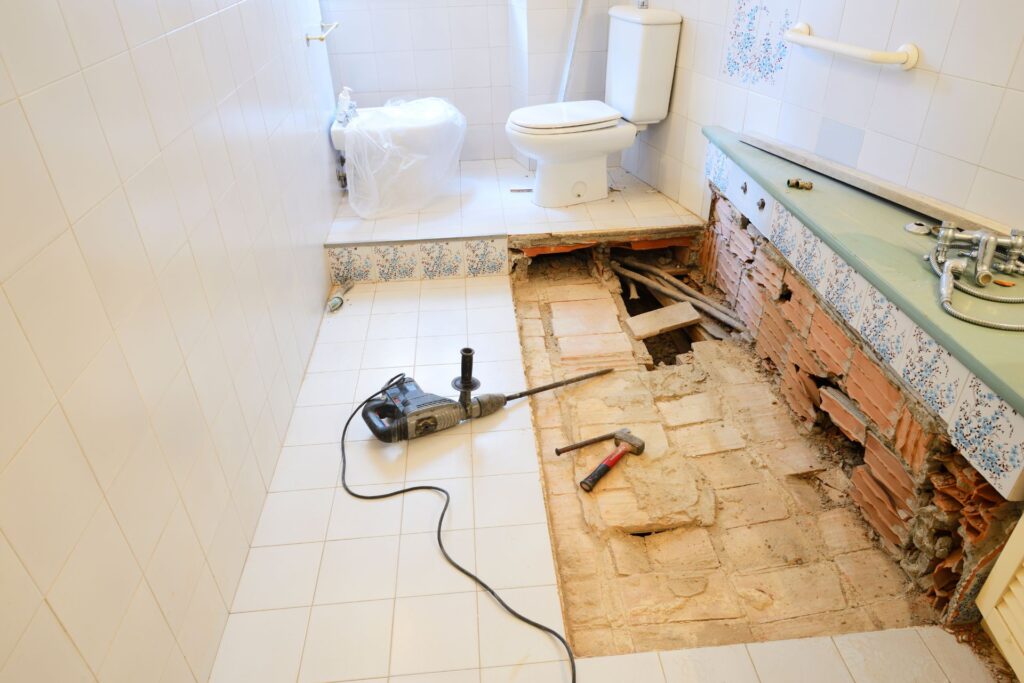Welcome to our guide on understanding why your bathroom smells when it rains, a surprisingly common issue in New Zealand homes. If you’ve ever noticed an unpleasant odor creeping into your bathroom during wet weather, you’re not alone. This mysterious smell can be caused by everything from blocked drains to poor ventilation, and it’s often worsened by the unique climate and plumbing systems we have in NZ. In this article, we’ll dive into the root causes of these smells, offer practical solutions, and give you tips on how to prevent the problem from returning, ensuring your bathroom stays fresh no matter what the weather throws at you.
A common reason your bathroom smells when it rains in NZ is due to changes in atmospheric pressure, which can cause sewer gases to escape from your plumbing. Blocked drains, faulty vent pipes, or poorly sealed toilet fixtures are often the culprits. Regular maintenance, such as cleaning drains and ensuring proper ventilation, can help prevent these odors from occurring during rainy weather.
Table of Contents
Why Does The Bathroom Smell When It Rains?
A Brief Explanation
When it rains, the atmospheric pressure changes, which can influence your home’s plumbing system. This pressure shift creates a vacuum effect, which may cause sewer gases trapped in your pipes to escape into your bathroom. If the seals in your plumbing aren’t tight or if there are gaps in the drainage system, these unpleasant smells can easily find their way indoors. The rain might not directly cause plumbing issues, but the change in pressure combined with moisture and humidity can exacerbate any existing problems within your system.
Common Sources of the Smell
1. Trapped Sewer Gases: Sewer gases, which are a mix of unpleasant odors and potentially harmful substances, can be forced back up through your drains due to changes in pressure. Normally, your plumbing system should prevent this from happening through venting, but blockages or leaks can let these gases escape into your bathroom.
2. Blocked or Poorly Vented Plumbing: If your home has blocked plumbing vents, it can prevent the proper release of sewer gases, causing them to accumulate and flow back into your living spaces. Poorly vented systems might struggle to balance air pressure during rain, resulting in a backflow of foul odors.
3. Drainage Issues: Blocked drains are another common culprit for bad bathroom smells during rainy weather. When the rain causes a surge of water into your drainage system, pre-existing clogs can lead to backups and overflow, releasing the trapped, stale water or debris that emits a strong odor.
4. Moisture Buildup: Rainy weather adds humidity to the air, which can increase moisture levels in your bathroom. In combination with poor ventilation, this extra moisture can contribute to mold and mildew growth. These fungi thrive in damp environments, adding to the musty smell in your bathroom.
Specific NZ Climate Considerations
In New Zealand, climate plays a significant role in exacerbating these issues. The country experiences frequent rainfall, and many homes are located near the coast, where humidity levels are often high. This creates the perfect storm for plumbing and drainage issues, especially in older homes that may not have been upgraded to modern standards. Coastal homes are particularly vulnerable to moisture-related problems due to salty air and frequent weather changes. Older infrastructure in many regions of NZ means outdated plumbing systems are more prone to leaks, blockages, and poor venting, making these problems even more pronounced during wet weather.
Additionally, New Zealand’s high rainfall levels can overwhelm drainage systems, especially in areas that rely on older or poorly maintained infrastructure. This means that during heavy rain, even small blockages or minor issues can lead to more significant problems, like sewage backflow or persistent odors.
By understanding these dynamics, homeowners can better anticipate potential bathroom smells when it rains and take proactive steps, such as maintaining proper plumbing ventilation, regularly clearing drains, and addressing any moisture buildup before it leads to bigger problems.

Diagnosing The Cause Of The Smell
Dealing with bathroom odors, especially when it rains, can be tricky, but understanding the source of the problem is the first step toward a solution. Here’s a step-by-step guide to help you diagnose the cause of the smell.
Step-by-Step Guide
1. Check the Drains
Start by examining the drains in your bathroom. Over time, hair, soap scum, and other debris can build up and cause blockages, which may result in unpleasant odors. To check, remove any drain covers and use a flashlight to look for signs of buildup. If you notice that water drains slowly or not at all, a clog could be contributing to the smell. Simple tools like a drain snake or a mixture of baking soda and vinegar can help clear minor blockages. Regular cleaning and maintenance can prevent these issues from recurring.
2. Inspect Plumbing Vents
Plumbing vents play a crucial role in keeping your home odor-free. They allow sewer gases to escape and ensure proper airflow in your plumbing system. If a vent is blocked or damaged, these gases can build up and cause a foul smell in your bathroom, especially during heavy rainfall. Head to your roof (safely, of course) and inspect the vent pipes for any signs of damage or obstruction, such as bird nests, debris, or leaves. If you’re unsure, a professional inspection might be needed, as vent issues often require expertise to fix.
3. Examine the Toilet Seal and P-Traps
Your toilet and sink have built-in mechanisms to keep sewer gases at bay. The P-trap, a U-shaped pipe under sinks, retains water that acts as a barrier to prevent gas from seeping into your bathroom. Similarly, the wax seal under your toilet creates a tight seal to keep odors contained. If the water in the P-trap evaporates or the toilet seal deteriorates, you might notice an unpleasant smell. To check, run water in unused sinks and observe the toilet for any leaks at its base. If you suspect a broken seal or a dry P-trap, re-sealing the toilet or replenishing the trap with water can help fix the problem.
4. Check for Water Leaks or Dampness
Excess moisture in your bathroom can lead to mold and mildew growth, which may be the culprit behind the smell. Rainy weather can exacerbate this issue by introducing more humidity into your home. Look for signs of leaks around sinks, toilets, and showers, and feel the walls and flooring for damp spots. If mold or mildew is present, it’s important to address the source of moisture immediately and use appropriate cleaning products to remove the growth. Keep in mind that persistent dampness could indicate a hidden plumbing issue that needs professional attention.
When to Call a Professional Plumber
While DIY fixes can address many minor issues, there are certain situations where calling a professional plumber is the best course of action. If you’ve inspected the drains, vents, seals, and leaks, but the smell persists, or if you encounter complex problems like severe blockages, damaged plumbing vents, or significant leaks, it’s time to seek expert help. Professionals have the tools and experience to diagnose issues that aren’t visible to the naked eye, and they can recommend more permanent solutions to prevent future problems.
Some warning signs that indicate you should reach out to a plumber include:
- A persistent sewage smell that doesn’t go away after basic troubleshooting.
- Multiple drains in your home are slow or blocked, which could indicate a more significant issue within the main sewer line.
- Water damage that continues to worsen, signaling an ongoing leak in your plumbing system.
A plumber can help identify the root cause of the issue, whether it’s a cracked pipe, a malfunctioning vent, or a faulty seal. With their assistance, you can ensure that the problem is properly resolved, saving you from future headaches.
This step-by-step approach, along with knowing when to call in the professionals, will help you keep your bathroom fresh and odor-free, no matter the weather.
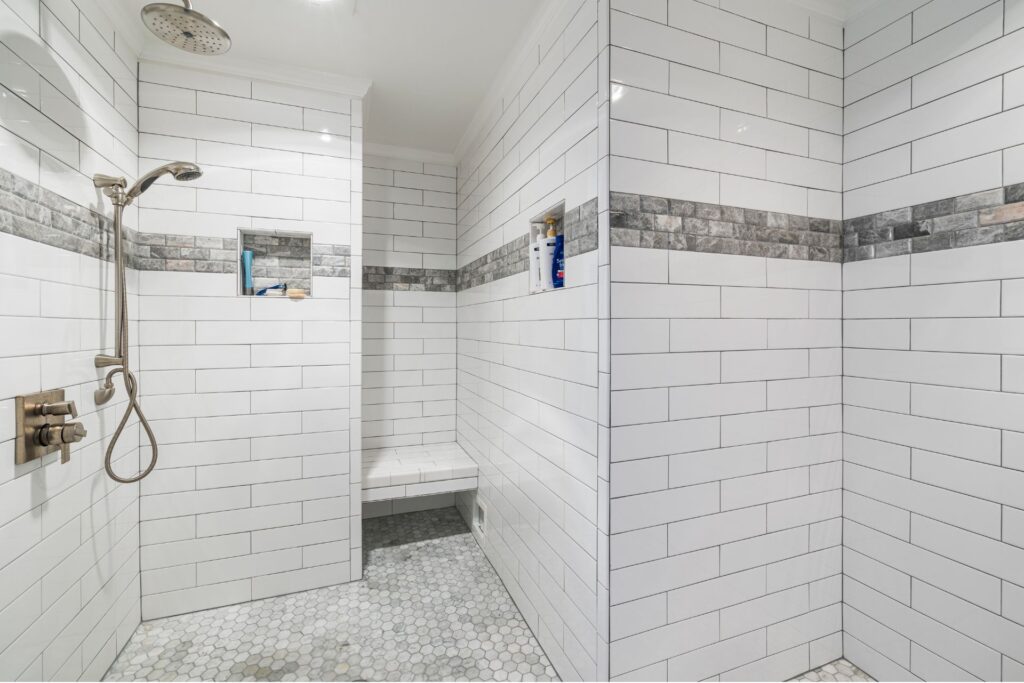
How To Fix Bathroom Smells When It Rains
Dealing with bathroom smells that worsen when it rains is not only unpleasant but can also be a sign of deeper plumbing or ventilation issues. Luckily, there are several DIY solutions and, if necessary, professional services available in New Zealand to address these problems.
DIY Fixes
Cleaning the Drains
A common cause of bathroom smells is clogged or dirty drains. When rainwater increases the pressure in your drainage system, stagnant water, grime, and organic material stuck in the pipes can release foul odors. One of the simplest home remedies involves using baking soda and vinegar. Start by pouring a cup of baking soda down the affected drain, followed by a cup of white vinegar. Allow the mixture to sit for 10-15 minutes, then flush it with boiling water. This method helps to break down grime and eliminate bacteria that contribute to the odor.
Installing or Repairing Vent Pipes
Your bathroom’s vent pipes are designed to allow air to flow freely through the plumbing system, preventing gas buildup and ensuring that water drains smoothly. If the vent pipes are clogged or damaged, the system might not be able to release air properly, which can lead to bad smells. In some cases, installing new vent pipes or repairing the existing ones could improve the airflow, reducing unpleasant odors. This task requires some knowledge of plumbing and roofing but can be tackled by determined DIYers who are comfortable with small home projects.
Sealing Leaks
A leaky toilet seal, often caused by a worn-out wax ring, is another possible culprit for bathroom smells. Rainwater can exacerbate the issue by increasing pressure in the plumbing system, allowing sewer gases to escape into your bathroom. To fix this, you may need to replace the wax ring or inspect other seals around your toilet and shower. Make sure to turn off the water supply and drain the toilet before attempting repairs. This small fix can make a big difference in keeping your bathroom fresh.
Mold and Mildew Removal
Mold and mildew thrive in damp environments, which makes your bathroom a prime breeding ground, especially when the humidity spikes during the rainy season. Persistent smells are often a sign that mold and mildew have settled into crevices, grout, or behind tiles. To tackle this, you can use a solution of water and bleach or specialized mold removers. Scrub the affected areas thoroughly, and consider installing a dehumidifier to keep the moisture levels in check moving forward. Regular cleaning and maintenance can prevent these smells from recurring.
Hiring a Professional in NZ
If the DIY solutions don’t resolve the issue, it might be time to call in a professional. Bathroom odors that persist even after basic fixes could be a sign of more complex problems like plumbing blockages, damaged vent stacks, or structural leaks that are beyond the scope of simple home remedies.
Tips for Finding Qualified Plumbers in NZ
When hiring a professional plumber in New Zealand, look for those who are Licensed Building Practitioners (LBPs). This ensures they meet the standards required for plumbing and gasfitting work. A good way to find qualified plumbers is to check online reviews, ask for recommendations from friends or family, or visit local directories such as Master Plumbers NZ. It’s also important to request quotes from multiple plumbers to compare their services, experience, and pricing before making a decision.
Expected Costs for Common Fixes
Depending on the severity of the problem, the cost of hiring a professional can vary. Drain clearing services typically range from $150 to $300, depending on the complexity of the clog. Ventilation repairs, such as fixing a blocked or damaged vent pipe, can cost between $300 to $600. If your issue involves sealing leaks, the price for repairs might range from $200 to $500, depending on the extent of the work needed. Always request a detailed estimate to avoid unexpected expenses, and consider the value of the long-term fix compared to recurring DIY efforts.
Tackling bathroom smells when it rains is a matter of identifying the source, whether it be drainage issues, poor ventilation, or mold buildup. Start with DIY fixes for a cost-effective approach, but don’t hesitate to bring in a professional if the problem persists, especially for more complicated repairs or plumbing upgrades in your NZ home.
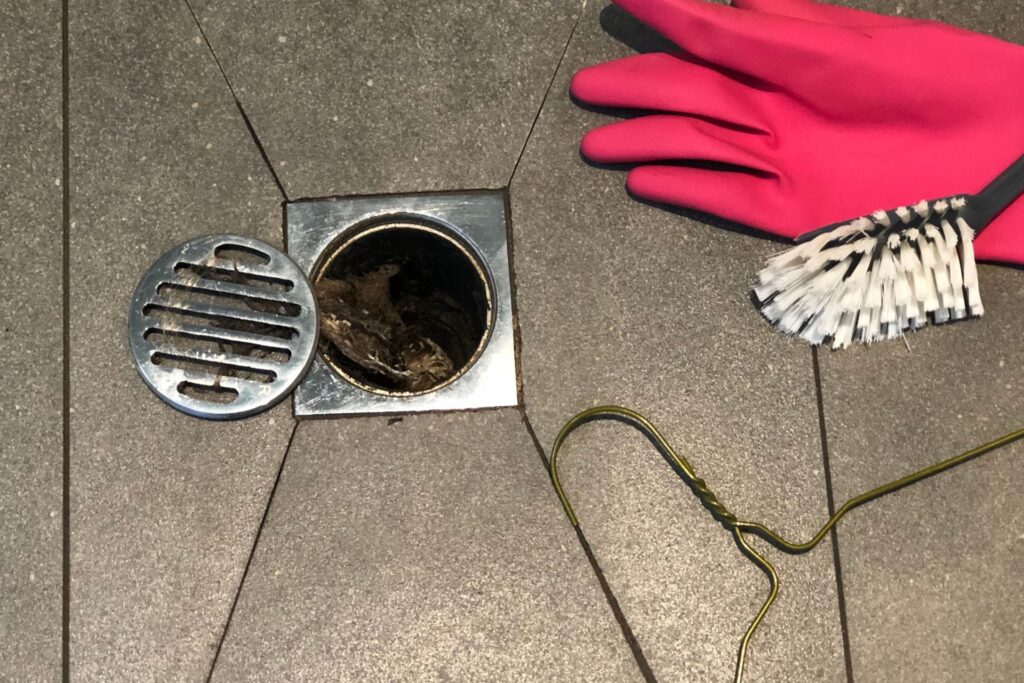
Preventative Measures To Keep Your Bathroom Smelling Fresh
Keeping your bathroom smelling fresh requires a few proactive steps. These preventative measures not only help control bad odors but also maintain the longevity of your bathroom’s features. Let’s dive into some essential practices you can adopt.
Regular Maintenance
Regular upkeep is key to preventing unwanted smells. One of the first areas to focus on is the bathroom drains. Over time, hair, soap scum, and other debris can accumulate, leading to blockages that trap water and create foul odors. Cleaning your drains on a regular basis, using simple methods like flushing them with hot water or mild drain cleaners, can help keep them clear and odor-free.
Additionally, inspect seals and fixtures periodically. Over time, wear and tear on the seals around your shower, bathtub, or toilet can allow water to seep into areas where it shouldn’t, leading to mold growth and that unmistakable musty smell. Make it a habit to check for signs of deterioration and reseal as necessary.
Finally, ensure your bathroom remains well-ventilated, especially during periods of wet weather. Moisture buildup is one of the main contributors to bad odors in the bathroom. By keeping windows open or using an exhaust fan after showers, you can prevent moisture from settling and promoting mold or mildew growth.
Invest in Drain Covers and Odor Traps
A simple yet highly effective way to combat bathroom odors is to invest in drain covers and odor traps. These small devices act as a barrier against foul smells rising from your drains. Drain covers prevent debris from going down your sink or shower drains, reducing the likelihood of clogs that could result in bad smells. Odor traps, on the other hand, work to seal in any gases that might be coming from your sewage pipes, ensuring that your bathroom air remains fresh.
These devices are affordable and can be easily installed without the need for a professional, making them a no-brainer for maintaining a clean-smelling bathroom.
Waterproofing
Proper waterproofing is another essential preventative measure for keeping your bathroom smelling fresh. Moisture is one of the biggest culprits of persistent odors, as it can seep into cracks and crevices, leading to mold and mildew. Ensuring your bathroom is well-sealed will go a long way in preventing moisture from settling into places that are hard to clean.
Make sure that the grout and caulking around your tiles, shower, and bathtub are intact. If you notice any cracks, it’s important to repair them as soon as possible to prevent water from getting into your walls or flooring. Additionally, using water-resistant paints and coatings on walls and ceilings can provide an extra layer of protection against moisture.
By following these steps, you’ll create a bathroom environment that not only looks good but smells clean and fresh year-round.

Case Studies And Real-Life Examples From New Zealand
When discussing bathroom odors during rainy weather, it’s helpful to look at real-life situations where people have faced similar issues and found practical solutions. These case studies illustrate how homeowners across New Zealand have tackled the challenge of unpleasant smells and the steps they took to resolve them.
Example 1: Homeowner in Auckland Resolves Recurring Bathroom Smells During the Rainy Season
In Auckland, a homeowner noticed a distinct, unpleasant smell in their bathroom every time it rained. At first, they assumed it was just a temporary issue caused by the humidity. However, the smells persisted, becoming more noticeable and frequent during periods of heavy rain. Concerned, they decided to investigate further.
After consulting with a local plumber, it was discovered that the issue stemmed from a partially blocked gully trap. The gully trap, which is designed to prevent sewer gases from entering the home, had been obstructed over time by debris and leaves, reducing its efficiency. The blockage allowed rainwater to mix with sewer gases, resulting in the persistent odor.
The homeowner resolved the issue by having the gully trap professionally cleaned and installing a simple mesh cover to prevent further debris from accumulating. Since making this change, the bathroom has remained odor-free, even during Auckland’s notoriously rainy winters.
This case highlights how seemingly small issues with plumbing fixtures, like gully traps, can lead to bigger problems if left unaddressed. A quick inspection and maintenance routine can prevent this type of issue from recurring.
Example 2: Christchurch Family Solves Odor Problem in a Historical Home
In Christchurch, a family living in a historic home faced a similar issue with bathroom odors during the rainy season. The home’s plumbing was decades old, and while the family had made efforts to modernize other parts of the house, the bathroom’s plumbing remained untouched.
During a particularly rainy week, the smell became overwhelming, prompting the family to call in a plumbing expert. Upon inspection, it was determined that the old cast-iron pipes had deteriorated over time, causing leaks that allowed water to seep in and mix with trapped gases. The combination of moisture and decaying organic material in the pipes contributed to the strong odors that became more prominent when it rained.
The solution for this family involved replacing the old cast-iron pipes with modern PVC piping. Though the repairs required an upfront investment, the family has since enjoyed a much more comfortable home environment, free from any lingering bathroom smells. This example shows how upgrading outdated plumbing systems, especially in older homes, can effectively solve odor issues that might otherwise seem unmanageable.
Example 3: Wellington Apartment Complex Fixes Bathroom Smells with Better Ventilation
In Wellington, an apartment complex struggled with foul bathroom odors every time it rained. The problem was widespread, affecting multiple units throughout the building. After much investigation, the property managers determined that the issue was linked to poor ventilation.
Because the building’s bathrooms were not adequately ventilated, the increased humidity during rainstorms allowed odors to build up, creating an unpleasant environment for residents. Rather than undertaking extensive plumbing work, the property managers opted for a simpler and more cost-effective solution: improving the bathroom ventilation.
They installed modern extractor fans in each bathroom, ensuring that moisture and odors were quickly expelled outside, rather than being trapped inside. They also encouraged residents to keep bathroom doors open after showers to allow for better air circulation. These changes made an immediate and noticeable difference in reducing the odor problem, much to the relief of the tenants.
This case study highlights how ventilation plays a critical role in managing bathroom odors, particularly in shared living spaces like apartment complexes. Simple fixes such as installing extractor fans can provide a long-term solution to persistent smells caused by poor air circulation.
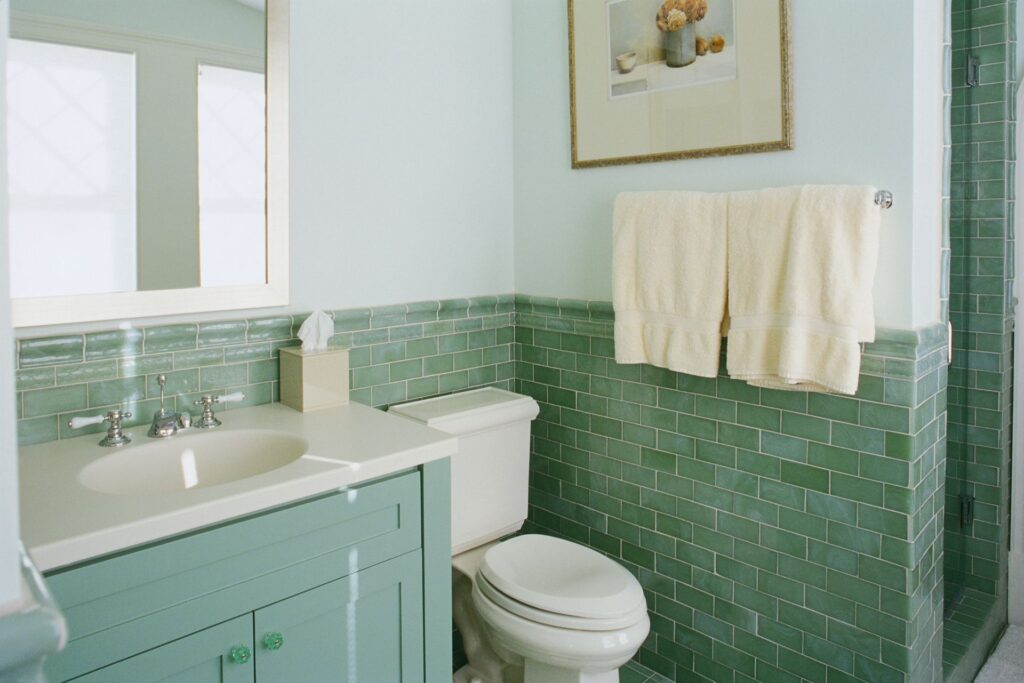
FAQs: About Bathroom Smells When It Rains NZ
Why does my bathroom smell only when it rains?
When it rains, changes in atmospheric pressure can push sewer gases through your plumbing system if there are blockages or faulty seals. This can cause bad smells to escape into your bathroom, particularly if your drains or vent pipes are not functioning properly.
Can bathroom smells during rain be harmful to my health?
In most cases, the smells are unpleasant but not harmful. However, exposure to sewer gases over long periods can cause health problems, including headaches or respiratory issues. If the odor persists, it’s best to address the issue quickly.
What should I do if the bathroom smells get worse over time?
If the smell intensifies or occurs more frequently, it’s likely that the underlying cause—such as a blocked drain, poor ventilation, or faulty seals—has worsened. It may be time to call a professional plumber to inspect the issue.
How can I tell if my plumbing vent is blocked?
Common signs of a blocked vent include gurgling sounds in your drains, slow drainage, or persistent bathroom odors. A blocked vent pipe can prevent proper airflow, allowing sewer gases to build up and enter your home.
What DIY methods can I use to fix the smell?
You can start by cleaning your drains with baking soda and vinegar, ensuring your vent pipes are clear, and checking for any leaks or broken seals around your toilet. Proper ventilation can also help reduce smells.
Should I be concerned if the smell is coming from the shower drain?
Yes, shower drains are common sources of bad odors due to soap scum, hair, and debris that can accumulate over time. Clearing the drain and using a drain cleaner may help. If the smell persists, it could indicate a deeper issue with your plumbing system.
How often should I clean my bathroom drains to prevent smells?
Cleaning your drains every few months can help prevent blockages that lead to bad odors. Regular maintenance can keep your bathroom smelling fresh, especially during wet weather when smells are more likely to occur.
Can mold or mildew contribute to the smell?
Yes, excess moisture from rain can lead to mold and mildew growth, especially in poorly ventilated bathrooms. Mold and mildew can produce musty smells that add to the unpleasant odor during rainy weather. Keeping the bathroom dry and using mold-resistant products can help.
How much does it typically cost to fix bathroom smells related to plumbing issues in NZ?
Costs vary depending on the severity of the issue. Basic fixes like clearing a drain or replacing a toilet seal may cost between $150-$300 NZD, while more complex plumbing repairs could range from $500-$1000 NZD. It’s always best to get quotes from local plumbers.
What long-term solutions can I implement to prevent bathroom smells during rain?
Long-term solutions include regular drain cleaning, ensuring proper ventilation in your bathroom, sealing any leaks, and checking that your plumbing vents are clear. Investing in quality plumbing fixtures and consulting a plumber for an annual check-up can also help prevent recurring odors.
Conclusion
In conclusion, bathroom smells when it rains can often be traced back to common issues like blocked vents, poor drainage, or plumbing leaks. Fortunately, by understanding the root causes and implementing some of the solutions we’ve discussed—such as clearing clogged vents, ensuring proper drainage, or addressing any leaks—this unpleasant problem can be effectively managed. It’s important to remember that with regular maintenance and a bit of vigilance, you can prevent these odors from reoccurring. If you’re dealing with more persistent issues or feel unsure about tackling them yourself, reaching out to a local plumber in New Zealand is always a good next step. Whether you choose to apply the DIY fixes or seek professional help, addressing these smells sooner rather than later will restore your bathroom’s fresh environment.
About the Author:
Mike Veail is a recognized digital marketing expert with over 6 years of experience in helping tradespeople and small businesses thrive online. A former quantity surveyor, Mike combines deep industry knowledge with hands-on expertise in SEO and Google Ads. His marketing strategies are tailored to the specific needs of the trades sector, helping businesses increase visibility and generate more leads through proven, ethical methods.
Mike has successfully partnered with numerous companies, establishing a track record of delivering measurable results. His work has been featured across various platforms that showcase his expertise in lead generation and online marketing for the trades sector.
Learn more about Mike's experience and services at https://theleadguy.online or follow him on social media:
